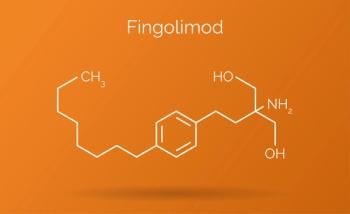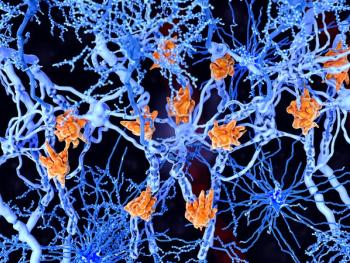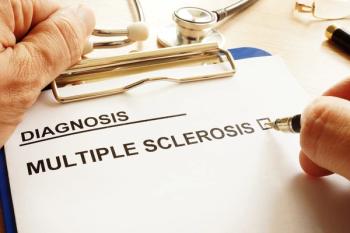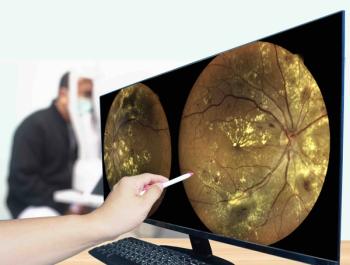
Multiple Sclerosis
Latest News

Latest Videos

CME Content
More News

New research helps explain why a subset of patients with relapsing/remitting multiple sclerosis (MS) experience long-term heart rate slowing after taking fingolimod.

Various therapies have different impacts on brain volume loss in patients with relapsing multiple sclerosis (MS), a new study has found.

By attending multiple sclerosis (MS) support group meetings, getting to know members, and sharing their drug-company–sponsored meals, an author delves into the group’s culture and determination to resist being pigeonholed.

Value-based agreements come with risks and benefits, but a health system’s existing facilities and initiatives can help support the goals associated with them, JT Lew, PharmD, MBA, a managed care pharmacist at MultiCare Health System, explained.

JT Lew, PharmD, MBA, managed care pharmacist at MultiCare Health System, spoke to the impacts of processes such as prior authorization and step therapy requirements in the realm of multiple sclerosis (MS).

Ocrelizumab and hyaluronidase is now the first and only twice-yearly subcutaneous injection approved for relapsing multiple sclerosis (RMS) and primary progressive multiple sclerosis (PPMS).

An electronic version of the Symbol-Digit Modalities Test could enable people with multiple sclerosis (MS) to perform frequent remote cognitive assessments independently.

The HERCULES study of tolebrutinib is the first and only to show reduced confirmed disability progression at 6 months in nonrelapsing secondary progressive multiple sclerosis (MS).

JT Lew, PharmD, MBA, highlights that the primary challenges for patients with multiple sclerosis (MS) in accessing prescribed medications include dealing with the shock of the diagnosis, navigating complex health plan benefits and out-of-pocket costs, and experiencing delays due to insurance barriers.

Acute clinical events with stable MRI were more likely among patients with multiple sclerosis who had longer disease duration, received highly effective disease-modifying therapies, and who presented with fatigue.

A predictive tool considering disease duration, age at disease onset, age, and Expanded Disability Status Scale score estimated patients’ risk of transition to secondary progressive multiple sclerosis (MS).

A codesigned online nutrition program could potentially fill a need for reliable and evidence-based nutrition information for patients with multiple sclerosis (MS).

Study results demonstrated significant correlations between fatigue and reductions in walking speed and mobility among patients with multiple sclerosis.

Engaging with healthy lifestyle behaviors, including a healthy diet and physical activity, was associated with better outcomes among patients with multiple sclerosis (MS).

Heidi Crayton, MD, and Maria Lopes, MD, discuss future research in multiple sclerosis that they find exciting and promising.

Key opinion leaders discuss the single FDA-approved option for primary progressive multiple sclerosis and emerging therapies under investigation for this MS subtype, examine the PERSEUS trial, and address concerns they anticipate with the potential approval of BTKis for MS patients and strategies for mitigating these concerns.

Medical experts discuss the failure of evobrutinib to meet its primary endpoint in phase 3 trials, review the primary outcomes of the phase 2B study of tolebrutinib in relapsing multiple sclerosis, examine payers' perspectives on the currently available data for tolebrutinib, and briefly describe the design of the HERCULES trial.

New findings show a similar number of injective-related reactions (IRRs) were reported between the use of ofatumumab (Kesimpta) and ocrelizumab (Ocrevus) in the treatment of multiple sclerosis, but less severe reactions have been associated with ofatumumab.

A 2-sample Mendelian randomization study found a potential connection between dietary intake and multiple sclerosis (MS) risk and severity.

An analysis conducted on UK Biobank data suggests a possible association between higher concentrations of serum albumin and a reduced risk of multiple sclerosis (MS).

A prospective cohort study, using data from the UK Biobank, suggested that the Mediterranean diet could provide benefits to patients with multiple sclerosis.

A cross-sectional, prospective study found that gray matter atrophy was more prevalent in patients with more severe progressive multiple sclerosis (MS) compared with those with less severe progressive disease.

A small cohort demonstrated the potential benefits aerobic exercise regimens hold for managing fatigue symptoms in multiple sclerosis (MS), but more studies are needed.

Distinct retinal vessel atrophy patterns may be associated with multiple sclerosis (MS), but further research is needed to assess retinal vessel changes and their underlying role in MS.

A real-world study assessed the impact of cannabis-based medicinal products on health-related quality of life in patients with multiple sclerosis (MS).














